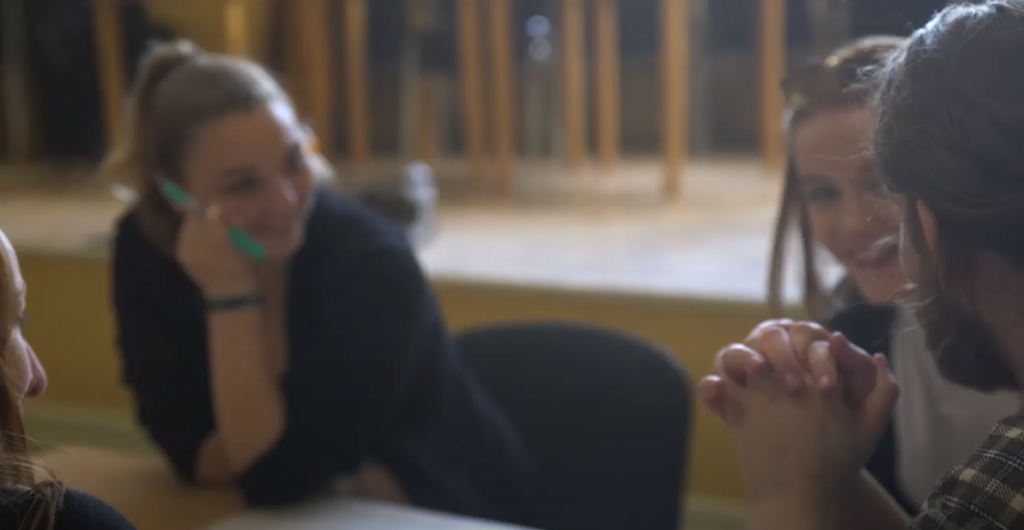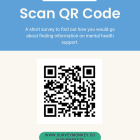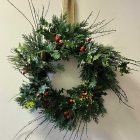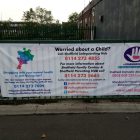Connected Worlds reflection

By Jonathan Monk-Cunliffe
Jonathan is a junior doctor interested in mental health and in educating other healthcare professionals. He heard about Connected Worlds and was interested to join the group and learn more about what it does. He attended the group as a participant and then helped to make a video about the group (below), to help show other healthcare professionals and students about the importance of community arts-based groups.
I’ve always liked hearing stories. I can remember lying in bed when I was little and listening to the Harry Potter audio books, falling asleep with them still going on the tape player. They were never playing in the morning, so I guess my Mum must have tiptoed in at some point and quietly pressed pause. I liked hearing about different adventures, seeing how one thing lead to another, how the characters changed and developed. Exploring a different world was a privilege, and I always liked to think of myself in it, how I’d react. I’m still holding out for my invitation to Hogwarts.
I guess in a way that’s partly why I became a doctor. We’re in a privileged position of hearing people’s stories every day. Whether that’s how they got a cough, or how they’ve felt since their Mum died, each story is unique to the teller and each one is meaningful.
I also like telling stories. At times they seem more interesting in my head than when they come out of my mouth (the one about losing my umbrella is always met with a groan), but there’s something healing about sharing something and having someone listen. Stories are what I liked most about the Connected Worlds course. It was a chance to share ideas with people from all different backgrounds, and gave us a chance to spend time learning from one another. While most people on the course had experienced some sort of mental health difficulties at some point, they were there as people, not as patients, which meant we could all tell our stories on a level with each other.
We did lots of different activities as a group, but there were a couple that stood out as my favourites. In one we drew a road on a big piece of paper, and added little pictures of the things that were important on our journey to where we are today. Everyone drew something different, and it was a privilege to hear each person’s unique story. In another exercise we wrote a poem made up of lines from each of us about the world we’d like to see. Each line gave a vision of a wonderful world, from watching the birds in the garden to drinking vodka in a field at a festival to exploring other worlds with a time machine. Each line was unique to the person who wrote it, but a thread ran through the poem linking all our worlds. Everyone had hope for a world where we had time to enjoy the simple things, nothing fancy (apart from maybe the time machine).
The world isn’t always how we dream it could be, but telling the tale of how it is can help us to find meaning and purpose in the harder times. Doing this in different ways to how we normally would, whether that’s through art, writing or drama, can give new insights and help us look at things in different ways. Sharing our story can then help us to own our story, and listening to others can build a supportive community which hears the good bits as well as the not so good bits. Because in a community we listen as well as speak, we learn from one another and we show solidarity with each others’ suffering.
I wasn’t observing the group, I was taking part, so what did I take away? Well I guess the first thing to say is that I came as a person, like everyone else, so all of the things in the paragraph above are as relevant to me as anyone. But if you forced me to put on my professional hat, I can think of plenty of things that the Connected Worlds group taught me about my work as a doctor. I was learning from a prestigious panel of experts by experience, people who know more about themselves than anyone, and who generously shared some of their experience with the group. We were able to interact in the setting of a community, rather than a consultation. In medicine it can be easy at times to see people as the labels we put on them, rather than the person they are, but at Connected Worlds I had the privilege of speaking to people as people, not patients. To me it highlighted the value that community groups and activities can give, which doctors can’t, and the importance of us working together towards being healthier and happier.
I’m still working on my own story, and I doubt it will make it onto a tape read by Stephen Fry, but Connected Worlds gave me another chapter to add to it, and reminded me of how sitting down with friends and telling stories is essential for all of us.
This piece was originally written prior to covid-19. The events of the last few months have changed the ways we interact with each other, but have not changed the importance of those interactions.


